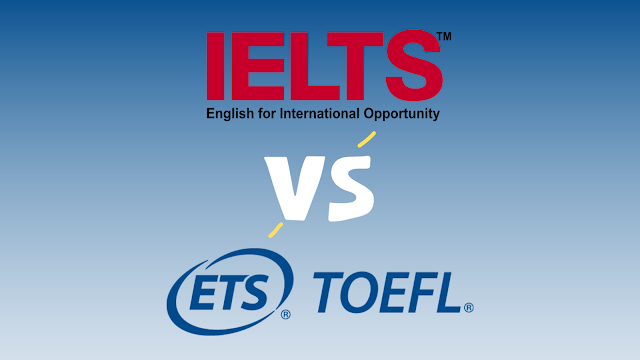IELTS vs. TOEFL: Choosing the Right English Proficiency Exam
페이지 정보

If you want to live, work, or study abroad or in an English-speaking environment, an English proficiency exam is almost always going to be required. Two widely recognized exams, the IELTS (International English Language Testing System) and TOEFL (Test of English as a Foreign Language), can be used to internationally verify your English level.
Many students struggle when trying to decide which exam they should take. This guide will help you to understand the key differences between the IELTS and TOEFL exams and will help you select the test that best suits your needs.

Test Format:
IELTS: The IELTS consists of four sections— Reading, Writing, Listening, and Speaking. The Speaking section involves a face-to-face interview with an examiner.
TOEFL: The TOEFL is also divided into four sections— Reading, Writing, Listening, and Speaking. The Speaking section on the TOEFL exam, however, involves recording spoken responses to provide prompts.
Scoring System:
IELTS: The IELTS uses a "band score", which ranges from 0 to 9 bands, with 0.5 band increments (for example, you can score a band 6.5). Each section is scored separately, and the overall band score is an average of the four sections. This means that each portion of the exam is equally important.
Most universities or international companies require a minimum band 6.5-7 in order to be admitted or hired.
Most universities or international companies require a minimum band 6.5-7 in order to be admitted or hired.
TOEFL: Scores range from 0 to 120, with 1-point increments for each section. The total score is the sum all four sections.
Most universities or international companies require a minimum score of 90-100 to be admitted or hired.
Test Delivery:
IELTS: The IELTS exam is currently offered in two formats—Paper-based and Computer-based (except for the Speaking section). The Speaking test is always conducted face-to-face with an examiner.
The Paper-based exam will require you to write an essay by hand, and the Computer-based exam will require you to type it. If you are not comfortable with an English keyboard, the Paper-based exam might be better, as it will save you time during the writing portion.
Note that both exam types are not offered at every testing location.
TOEFL: The TOEFL exam is offered as an Internet-based Test (iBT). The Speaking section involves recording responses to prompts via a computer rather than speaking with an examiner.
Some students feel awkward responding to spoken questions on a computer without another person present, and it can make spoken answers feel stilted and unnatural. If you are more comfortable speaking with someone in person, you might consider the IELTS exam instead.
Content and Style:
IELTS: The IELTS exam is widely recognized internationally. While it mainly is based around British English, it features a variety of accents in Listening and Speaking sections. Responding in American or Global English is also acceptable and will not affect your score.
TOEFL: The TOEFL primarily uses American English and academic contexts. Listening and Speaking sections focus on North American accents, and the Writing tasks are academic in nature. The TOEFL exam is widely accepted in North America, but is not as widely accepted internationally as the IELTS.
Why Choose IELTS:
You should choose the IELTs if you have a preference for face-to-face speaking. If you are comfortable with in-person interviews and prefer a human interaction aspect in the Speaking test, IELTS might be preferable. Your answers will come across as more natural and fluent than if you speak it into a computer.
If you are planning on working or studying outside of North America, or if you want to have a more globally-accepted English proficiency score, the IELTS might be a better choice.
The IELTS Writing section offers a mix of tasks, including both academic and general topics, which might suit individuals with diverse writing preferences. You have more flexibility and freedom to structure your written essays.
Why Choose TOEFL:
If you're more comfortable with computer-based assessments and recording spoken responses digitally, TOEFL's format might be more suitable. If you get nervous when speaking in front of others, you may prefer recording your spoken answer.
TOEFL is often favored by those aiming for academic study in North America, as it mirrors academic contexts and accents prevalent in that region. It's more specific and less general than the IELTS exam. If your primary purpose is to study abroad in North America, the TOEFL might be preferable for your needs.
Conclusion:
Both IELTS and TOEFL serve as benchmarks for English proficiency, but their structures, delivery modes, and emphasis on accents differ. Deciding between them often depends on personal preferences regarding test format, accent familiarity, and the purpose of the exam—whether it's for academic or general immigration purposes. Understanding these differences will aid in selecting the test that aligns best with your goals and comfort level.
In general, if you want a more widely-accepted English proficiency certificate, go with the IELTS. If you want to prove that you can thrive in a North American academic environment, go with the TOEFL.



